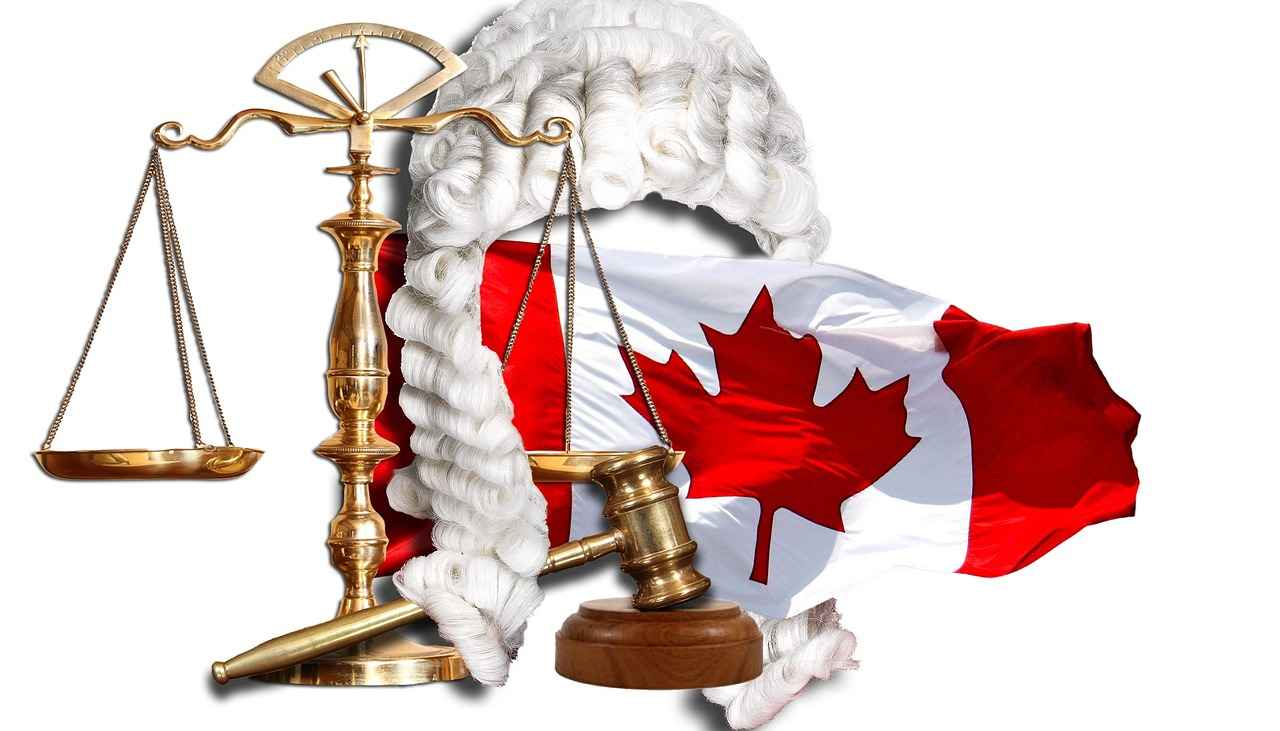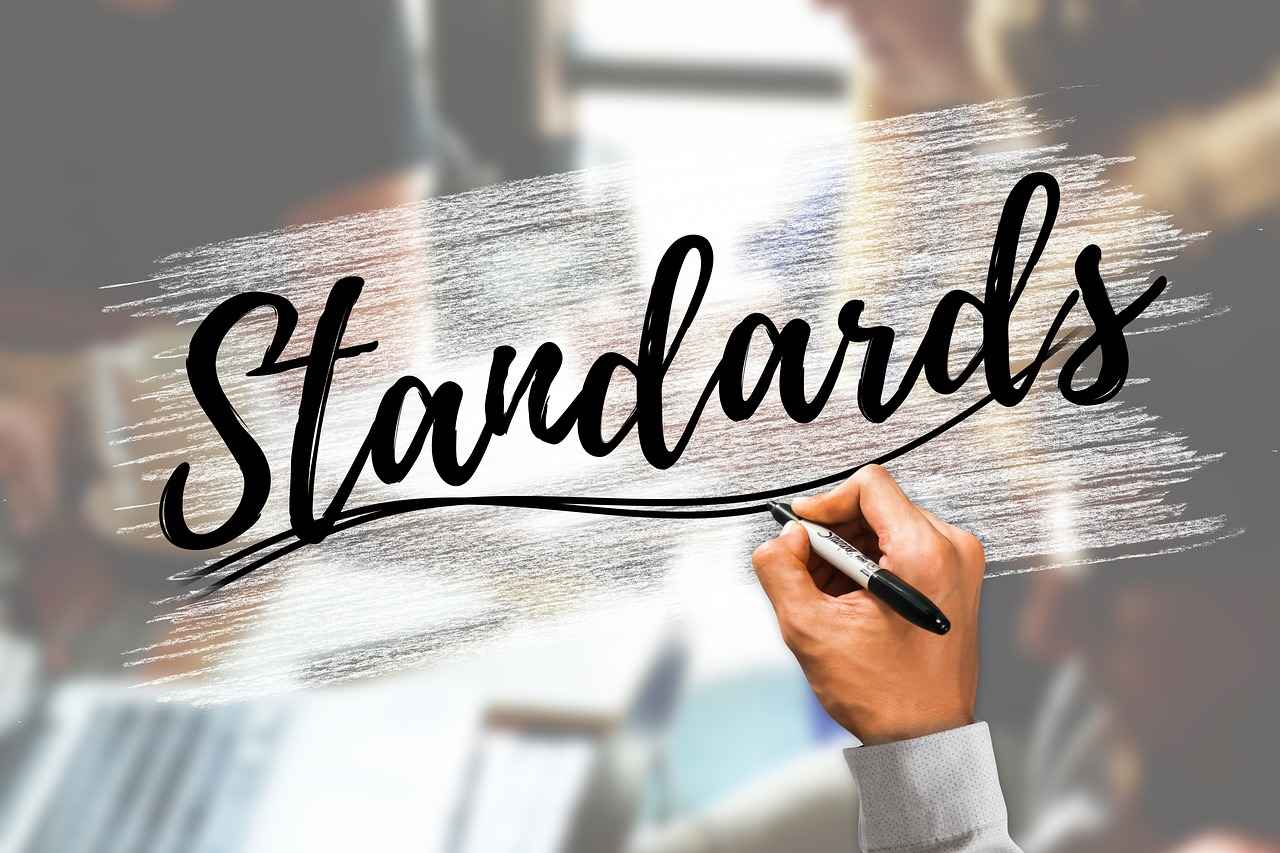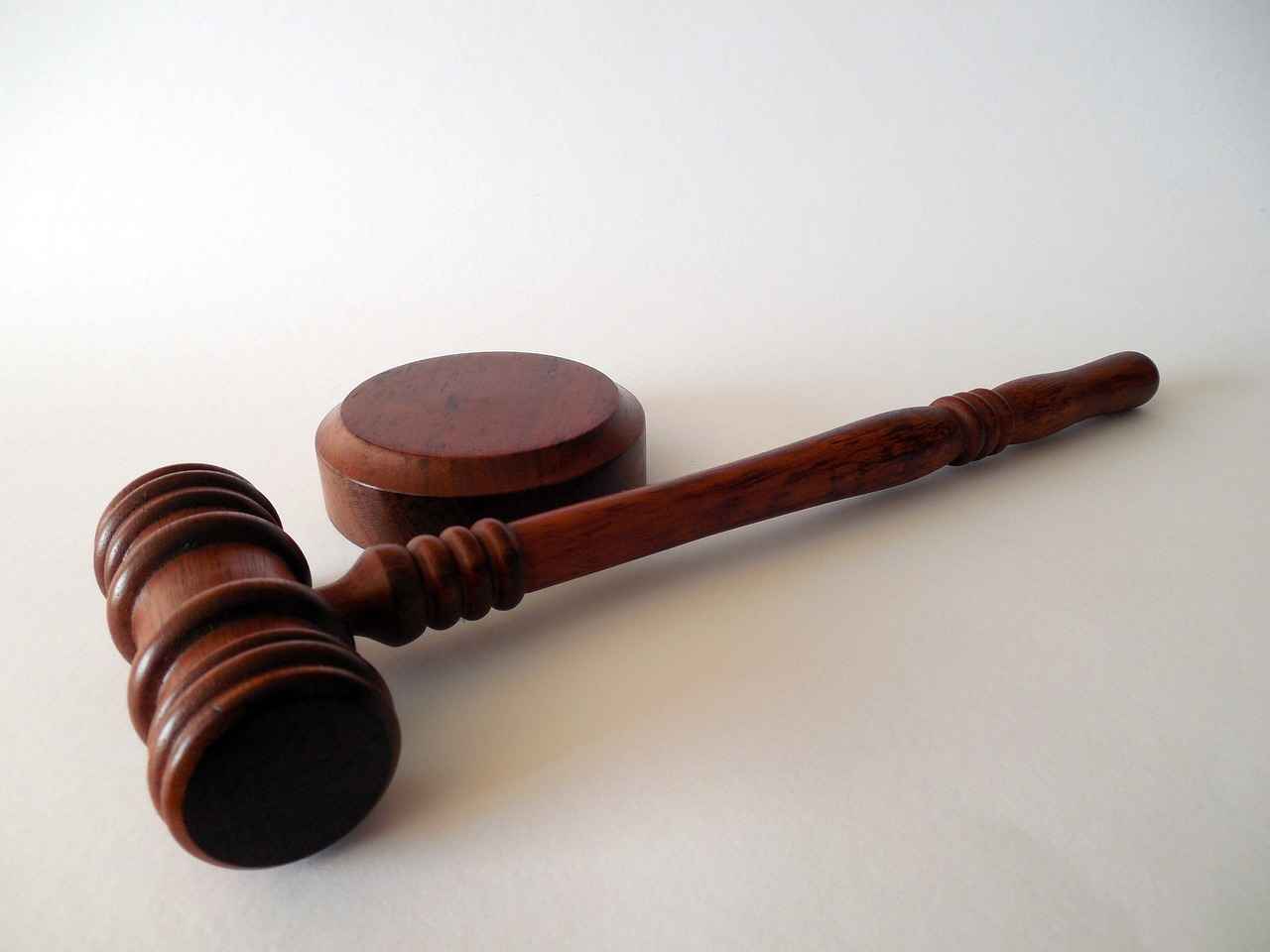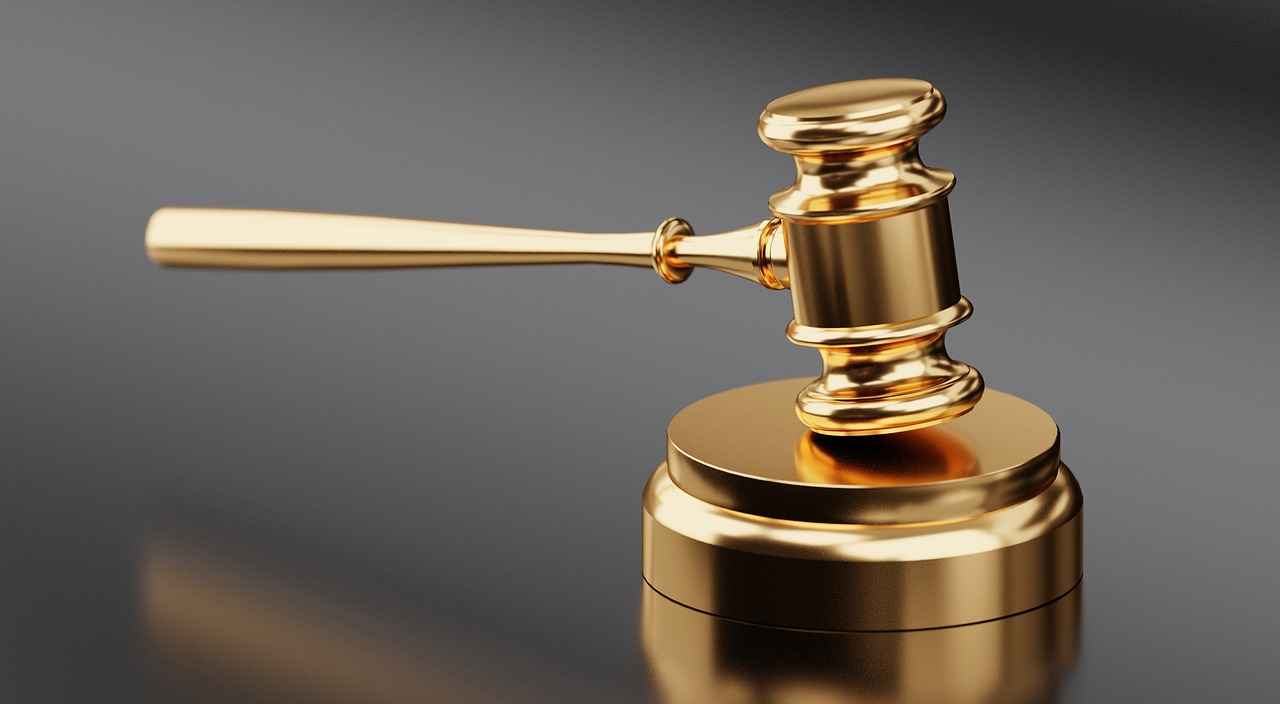This article explores various types of legal cases in the United States and provides guidance on finding qualified lawyers in Portland, Oregon, ensuring individuals make informed decisions.
Understanding Personal Injury Cases
Personal injury cases are prevalent in the U.S. and involve harm to an individual due to another’s negligence. When seeking a lawyer for personal injury, look for those with a proven track record in similar cases. Check for their success rates and client testimonials. Websites like Avvo and FindLaw can provide valuable insights.
Medical Malpractice: What You Need to Know
Medical malpractice cases arise when healthcare professionals fail to provide adequate care. It’s essential to choose an attorney who specializes in medical malpractice. Look for lawyers with medical knowledge, as they can better understand the complexities of these cases. Consider their experience in handling similar cases and their ability to communicate effectively with medical professionals.
Breach of Contract: Legal Implications and Solutions
Breach of contract cases occur when one party fails to fulfill their contractual obligations. When searching for an attorney, prioritize those who specialize in contract law. Ensure they have experience in the specific type of contract involved in your case, whether it’s business, real estate, or employment-related. Ask for referrals from trusted sources and check their credentials.
Navigating Property Disputes
Property disputes can involve various issues, including ownership and boundary disagreements. It’s crucial to find an attorney with expertise in real estate law. Look for lawyers who have successfully resolved similar disputes and are familiar with local property laws. Online legal directories can help you identify qualified attorneys in your area.
Landlord-Tenant Disputes: Rights and Responsibilities
Landlord-tenant disputes often arise over lease agreements and property conditions. Knowing how to select a knowledgeable attorney can help navigate these legal challenges. Focus on attorneys who have experience with landlord-tenant law and understand the local regulations. Seek out reviews from former clients to gauge their effectiveness.
Defamation Cases: Libel vs. Slander
Defamation cases involve false statements that harm a person’s reputation. Understanding the nuances of libel and slander is crucial when seeking legal representation. Look for attorneys who specialize in media law or defamation cases. Their experience will be invaluable in navigating the complexities of these cases.
Employment Disputes: Protecting Your Rights
Employment disputes can encompass wrongful termination, discrimination, and wage issues. Identifying an attorney with a strong background in employment law is essential for protecting your rights. Ensure they have experience with cases similar to yours and are familiar with the relevant federal and state employment laws.
Product Liability: Holding Manufacturers Accountable
Product liability cases arise when defective products cause harm. Finding a lawyer experienced in this area can help victims seek justice and compensation. Look for attorneys who have a history of successful product liability cases and understand the intricacies of consumer protection laws.
Wrongful Death Cases: Seeking Justice for Loved Ones
Wrongful death cases allow families to seek compensation for the loss of a loved one due to negligence. Selecting an attorney with compassion and expertise is crucial in these sensitive matters. Seek out lawyers who specialize in wrongful death and have a proven track record of winning similar cases.
Class Action Lawsuits: Collective Legal Action
Class action lawsuits allow groups of individuals to collectively sue for damages. Knowing how to find an attorney who specializes in class actions can enhance the chances of success. Look for firms with a strong history of handling class action suits and a reputation for client advocacy.
Assault and Battery: Legal Definitions and Consequences
Assault and battery cases involve intentional harm or the threat of harm. Understanding the legal definitions and implications can help individuals find the right legal representation. Choose attorneys who specialize in criminal law and have experience with assault cases, as they will be best equipped to navigate the complexities involved.
Criminal Offenses: Navigating the Justice System
Criminal offenses, including theft, drug offenses, and violent crimes, require skilled attorneys. Knowing how to choose a criminal defense lawyer is vital for a fair trial. Look for lawyers with experience in the specific type of crime charged and a strong understanding of criminal defense strategies.
Family Law: Divorce and Child Custody Matters
Family law encompasses various issues, including divorce, child custody, and adoption. Finding a compassionate and experienced family law attorney can significantly impact these personal matters. Seek out attorneys who specialize in family law and have a good reputation in your community.

Understanding Personal Injury Cases
When it comes to legal matters, understanding the nuances of various case types is essential for individuals seeking justice or resolution. One of the most common types of legal cases in the United States is personal injury, which involves harm to an individual due to another’s negligence. This article will delve into the intricacies of personal injury cases and provide valuable insights on how to find the most qualified lawyers in Portland, Oregon, and beyond.
Personal injury cases encompass a wide range of incidents, from automobile accidents to slip and fall incidents. In essence, these cases arise when an individual suffers harm due to the negligence or wrongful actions of another party. The key to a successful personal injury claim lies in proving that the other party was at fault and that their actions directly caused the injury.
When seeking legal representation for a personal injury case, it is crucial to consider several factors:
- Experience: Look for attorneys who specialize in personal injury law and have a proven track record of successful case outcomes.
- Reputation: Research online reviews, testimonials, and ratings to gauge the attorney’s reputation in the legal community.
- Communication: Choose a lawyer who communicates clearly and keeps you informed throughout the legal process.
- Fee Structure: Understand the attorney’s fee structure, particularly if they work on a contingency basis, meaning they only get paid if you win your case.
In Portland, Oregon, individuals can utilize various resources to find qualified personal injury lawyers. Online platforms such as Avvo and FindLaw allow users to search for attorneys based on their area of expertise and location. Local bar associations also provide directories of licensed attorneys, ensuring that you find someone who meets your legal needs.
It is advisable to schedule consultations with multiple attorneys before making a decision. During these meetings, ask pertinent questions regarding their experience with cases similar to yours, their approach to handling claims, and their strategies for maximizing your compensation. This not only helps you gauge their expertise but also allows you to assess your comfort level with the attorney.
Additionally, be wary of red flags when selecting a lawyer. If an attorney guarantees a specific outcome or pressures you into making quick decisions, consider it a warning sign. A trustworthy lawyer will provide honest assessments and allow you the time needed to make informed choices.
In conclusion, understanding personal injury cases and knowing how to find the right lawyer can significantly impact the outcome of your claim. By conducting thorough research, asking the right questions, and being aware of potential red flags, you can ensure that you are well-equipped to navigate the complexities of personal injury law.

Medical Malpractice: What You Need to Know
Medical malpractice is a serious legal issue that arises when healthcare professionals fail to provide the standard of care expected, resulting in harm to patients. This can include misdiagnosis, surgical errors, or inadequate treatment. Understanding the complexities of medical malpractice is essential for anyone considering legal action in this area.
When pursuing a medical malpractice case, it is critical to recognize that these cases can be incredibly challenging. The burden of proof lies with the plaintiff, which means you must demonstrate that the healthcare provider’s negligence directly caused the injury. This often requires expert testimony and a deep understanding of medical standards and practices.
To successfully navigate a medical malpractice claim, choosing a qualified attorney with experience in this field is paramount. Here are some practical steps to help you find the right legal representation:
- Research Experience: Look for attorneys who specialize in medical malpractice and have a proven track record of handling similar cases. Their experience can significantly influence the outcome of your case.
- Check Credentials: Verify the attorney’s credentials, including their education, licenses, and any professional affiliations with organizations such as the American Association for Justice.
- Read Reviews: Online reviews and testimonials from former clients can provide insights into an attorney’s reputation and success rate. Websites like Avvo or Martindale-Hubbell can be helpful resources.
- Consultation: Schedule consultations with potential attorneys to discuss your case. This meeting allows you to assess their communication style, approach, and whether you feel comfortable working with them.
- Fee Structure: Understand the attorney’s fee structure. Many medical malpractice attorneys work on a contingency fee basis, meaning they only get paid if you win your case. Ensure you are clear on any potential costs involved.
In addition to these steps, be aware of red flags that may indicate an attorney is not the right fit for your case. For example, if an attorney makes unrealistic promises about the outcome of your case or pressures you into making quick decisions, it may be best to seek representation elsewhere. Trust your instincts; a good attorney will prioritize your needs and provide honest, realistic advice.
Medical malpractice cases can take time to resolve, often requiring extensive investigation and negotiation. A competent attorney will guide you through each step of the process, ensuring that your rights are protected and that you receive the compensation you deserve for your injuries.
Ultimately, the right attorney can make a significant difference in the success of your medical malpractice claim. By taking the time to research and select a qualified legal professional, you can increase your chances of achieving a favorable outcome.

Breach of Contract: Legal Implications and Solutions
A breach of contract occurs when one party fails to meet their obligations as outlined in a legally binding agreement. This can involve various scenarios, such as not delivering goods or services, failing to make payments, or not adhering to the terms specified in the contract. Understanding the intricacies of contract law is essential for anyone involved in such a situation, whether as a plaintiff or a defendant.
Identifying a skilled attorney specializing in contract law is crucial for navigating these complex legal waters. Here are some essential steps to consider when searching for the right legal representation:
- Look for Specialization: Not all attorneys are created equal. Seek out lawyers who specialize in contract law, as they will have the expertise needed to handle your case effectively.
- Check Credentials: Verify the attorney’s qualifications, including their education, bar association membership, and any additional certifications in contract law.
- Experience Matters: An attorney with extensive experience in handling breach of contract cases will be better equipped to anticipate potential challenges and develop effective strategies.
- Client Reviews and Testimonials: Look for feedback from previous clients to gauge the attorney’s effectiveness, communication style, and overall satisfaction.
- Initial Consultation: Many attorneys offer a free initial consultation. Use this opportunity to discuss your case and assess whether the attorney’s approach aligns with your needs.
- Fee Structure: Understand the attorney’s fee structure upfront. Some may charge hourly rates, while others may work on a contingency basis. Ensure that you are comfortable with the financial arrangements.
When evaluating potential attorneys, consider asking the following questions during your initial consultation:
- What is your experience with breach of contract cases?
- Can you provide examples of similar cases you have handled?
- How do you plan to approach my case?
- What are the potential outcomes, and how long do you anticipate the process will take?
- What are your fees, and what services are included?
Additionally, be cautious of red flags that may indicate a less-than-reputable attorney. These can include:
- Unclear or overly complex fee structures.
- Lack of responsiveness or poor communication during initial consultations.
- Negative reviews or a lack of testimonials from previous clients.
- Pressure to sign contracts or agreements without adequate time for review.
In major metropolitan areas like New York City, Los Angeles, and Chicago, the legal market can be competitive. Utilize online platforms such as Avvo, FindLaw, or Martindale-Hubbell to research and compare attorneys. These platforms often provide ratings, reviews, and detailed profiles that can aid in your decision-making process.
In summary, navigating a breach of contract case can be daunting, but with the right legal representation, individuals can effectively advocate for their rights. Take the time to conduct thorough research, ask the right questions, and choose an attorney who not only has the necessary expertise but also aligns with your personal values and communication style.

Navigating Property Disputes
Property disputes can arise from a multitude of issues, often leading to significant stress and financial implications for those involved. These disputes may include ownership conflicts, boundary disagreements, easement issues, and disputes over property use. To effectively resolve these matters, it is crucial to engage an attorney who specializes in real estate law.
When searching for a qualified attorney in this field, there are several factors to consider:
- Experience and Expertise: Look for attorneys who have extensive experience specifically in real estate law. They should be familiar with local property laws and regulations, as these can vary significantly by state and municipality.
- Reputation: Research the attorney’s reputation within the community. Online reviews, testimonials, and referrals from friends or family can provide insight into their track record and client satisfaction.
- Communication Skills: Effective communication is vital in legal matters. Choose an attorney who listens to your concerns and can explain legal concepts in a way that is easy to understand.
- Negotiation Skills: Many property disputes can be resolved through negotiation rather than litigation. An attorney skilled in negotiation can help you reach a favorable settlement without the need for a lengthy court battle.
- Costs and Fees: Understand the attorney’s fee structure before committing. Some attorneys charge hourly rates, while others may offer flat fees for specific services. Ensure that their fees align with your budget and that you are aware of any additional costs that may arise during the process.
In major metropolitan areas like New York City, Los Angeles, and Chicago, the competition among attorneys can be fierce. Utilize online legal directories and platforms such as Avvo or FindLaw to compare attorneys based on their experience, client reviews, and areas of specialization.
Additionally, consider the following red flags when selecting a property dispute attorney:
- Attorneys who lack a clear fee structure or are unwilling to provide a written agreement.
- Those with a history of disciplinary actions or complaints filed against them.
- Attorneys who do not have a clear understanding of the specific issues related to your case.
In conclusion, navigating property disputes requires a careful approach to finding the right legal representation. By focusing on expertise, reputation, and effective communication, you can significantly enhance your chances of a successful resolution. Remember to conduct thorough research and consult multiple attorneys before making a final decision.

Landlord-Tenant Disputes: Rights and Responsibilities
Landlord-tenant disputes are a common occurrence in the realm of real estate law, often arising due to misunderstandings or disagreements over lease agreements and property conditions. These disputes can lead to significant stress and financial implications for both parties involved. Therefore, it is essential to understand the rights and responsibilities of landlords and tenants to navigate these challenges effectively.
Understanding Your Rights as a Tenant
- Right to a Habitable Living Space: Tenants have the right to live in a property that meets health and safety standards. This includes functioning plumbing, heating, and electrical systems.
- Right to Privacy: Landlords must provide notice before entering a tenant’s unit, except in emergencies.
- Right to Fair Treatment: Tenants are protected from discrimination based on race, gender, religion, or other factors.
Landlord Responsibilities
- Maintenance of Property: Landlords are responsible for ensuring the property is well-maintained and complies with local housing codes.
- Security Deposits: Landlords must handle security deposits according to state laws, including returning them promptly after the lease ends.
- Providing Notice: Landlords must give appropriate notice for lease terminations or rent increases.
Common Disputes and How to Resolve Them
Disputes can arise from various issues, including:
- Non-Payment of Rent: This is one of the most common disputes. Landlords may initiate eviction proceedings if rent is not paid on time.
- Property Damage: Disagreements over who is responsible for damage can lead to conflict. It’s crucial to document property conditions at both move-in and move-out.
- Lease Violations: Tenants may face eviction for violating lease terms, such as unauthorized pets or subletting without permission.
Finding the Right Attorney for Landlord-Tenant Disputes
When navigating landlord-tenant disputes, having a knowledgeable attorney can make a significant difference. Here are some tips for finding the right legal representation:
- Look for Specialization: Seek attorneys who specialize in real estate or landlord-tenant law. Their expertise will be invaluable in understanding the nuances of your case.
- Check Credentials: Verify the attorney’s credentials, including their education, years of experience, and any relevant certifications.
- Read Reviews: Online reviews and testimonials can provide insight into an attorney’s reputation and success rate.
- Consultation: Many attorneys offer free initial consultations. Use this opportunity to assess their communication style and approach to your case.
- Discuss Fees: Be clear about the attorney’s fee structure and ensure it aligns with your budget.
Red Flags to Avoid
- Lack of Communication: If an attorney is unresponsive or vague during initial consultations, it may indicate future issues.
- Pressure Tactics: Be wary of attorneys who pressure you into signing contracts or making quick decisions.
- Unclear Fee Structures: Avoid attorneys who cannot clearly explain their fee structures or who present hidden costs.
By understanding your rights and responsibilities as a landlord or tenant, and by selecting a qualified attorney, you can effectively navigate the complexities of landlord-tenant disputes. This proactive approach can help protect your interests and lead to a more favorable resolution.

Defamation Cases: Libel vs. Slander
Defamation cases are critical in protecting an individual’s reputation against false statements. These legal matters can significantly impact one’s personal and professional life. Understanding the distinctions between libel and slander is essential for anyone considering legal action in this area.
Libel refers to defamatory statements made in a permanent form, such as written words or images. This can include content published in newspapers, books, online articles, or even social media posts. Because libelous statements are recorded, they are often easier to prove in court, as there is tangible evidence of the statement made.
On the other hand, slander involves spoken defamatory statements. These are transient and can be more challenging to prove since they rely on the memory of witnesses or recordings. In slander cases, the plaintiff typically must show that the statement caused actual harm, which can complicate the legal process.
When pursuing a defamation claim, it is crucial to establish that the statement was false, damaging, and made with a certain level of fault. In the United States, public figures must also demonstrate that the statement was made with actual malice, meaning the speaker knew the statement was false or acted with reckless disregard for the truth.
Individuals considering a defamation case should seek legal representation from attorneys experienced in this specific area of law. Here are some steps to find the right lawyer:
- Research and Referrals: Start by asking friends, family, or colleagues for recommendations. Online reviews and legal directories can also provide insights into potential attorneys.
- Check Qualifications: Look for lawyers with experience in defamation cases. Verify their credentials, including education, bar association membership, and any specialized training.
- Schedule Consultations: Many attorneys offer free initial consultations. Use this opportunity to discuss your case and gauge their expertise and approach.
- Assess Communication: Choose a lawyer who communicates clearly and promptly. Effective communication is vital for a successful attorney-client relationship.
- Evaluate Costs: Understand the lawyer’s fee structure. Some may work on a contingency basis, while others may charge hourly rates. Ensure you are comfortable with the financial arrangements before proceeding.
In summary, defamation cases can be complex and require a thorough understanding of libel and slander. By following the steps outlined above, individuals can find qualified legal representation to help navigate these challenging situations.

Employment Disputes: Protecting Your Rights
Employment disputes can arise in various forms, including wrongful termination, discrimination, and wage issues. These conflicts often leave employees feeling vulnerable and unsure of their rights. It is essential to understand the complexities of employment law and the importance of having the right legal representation.
When faced with an employment dispute, the first step is to identify an attorney who specializes in employment law. A lawyer with a strong background in this field will have the knowledge and experience necessary to navigate the intricacies of your case. Look for attorneys with a proven track record in handling similar cases, as this can significantly enhance your chances of a favorable outcome.
One of the key aspects to consider when selecting an employment attorney is their familiarity with federal and state laws. Employment law can vary significantly from one jurisdiction to another, so it is crucial to choose a lawyer who understands the specific regulations in your area. For instance, if you’re located in a major city like New York or Los Angeles, you will benefit from an attorney who knows the local court systems and has established relationships with judges and other legal professionals.
- Credentials: Always check the attorney’s credentials, including their education, bar association membership, and any certifications in employment law.
- Experience: Look for an attorney with extensive experience in handling employment disputes, particularly those similar to yours.
- Client Reviews: Read reviews and testimonials from former clients to gauge their satisfaction and the attorney’s effectiveness.
- Consultation: Many attorneys offer free initial consultations. Use this opportunity to ask questions and assess their approach to your case.
It is also important to be aware of red flags when hiring an employment attorney. Avoid lawyers who make unrealistic promises about the outcome of your case or those who do not communicate clearly about their fees and processes. Transparency is key in any attorney-client relationship.
In addition to hiring the right attorney, understanding your rights as an employee is crucial. Familiarize yourself with relevant laws, such as the Fair Labor Standards Act (FLSA), the Americans with Disabilities Act (ADA), and the Equal Employment Opportunity Commission (EEOC) guidelines. Knowledge of these regulations can empower you in discussions with your lawyer and during negotiations.
Furthermore, documenting your experiences is vital. Keep detailed records of any incidents related to your employment dispute, including dates, times, witnesses, and any communications with your employer. This information can serve as crucial evidence in your case.
In summary, employment disputes can be complex and emotionally taxing. However, by choosing a qualified attorney with expertise in employment law, understanding your rights, and maintaining thorough documentation, you can protect your rights and work towards a resolution that is fair and just.

Product Liability: Holding Manufacturers Accountable
Product liability law is a critical area of personal injury law that holds manufacturers, distributors, suppliers, and retailers accountable for defective products that cause harm to consumers. These cases can arise from various defects, including design flaws, manufacturing defects, and inadequate warnings or instructions. Understanding the complexities of product liability is essential for victims seeking justice and compensation.
When a consumer is injured due to a defective product, it is vital to take immediate action. The first step is to document the incident thoroughly. Collect evidence such as photographs of the product, medical records, and witness statements. This information will be crucial when pursuing a legal claim.
Finding a qualified lawyer with experience in product liability cases is essential. Here are some strategies to locate the best legal representation:
- Research Online: Utilize legal directories and websites that provide reviews and ratings of attorneys. Websites like Avvo, Martindale-Hubbell, and FindLaw can help you find lawyers specializing in product liability.
- Check Credentials: Look for attorneys with a strong background in personal injury law, specifically those who have handled product liability cases. Verify their education, experience, and any relevant certifications.
- Consult Local Bar Associations: Many local bar associations offer referral services that can connect you with attorneys who specialize in specific areas of law, including product liability.
- Seek Recommendations: Ask friends, family, or colleagues for recommendations. Personal referrals can provide valuable insights into an attorney’s reputation and effectiveness.
- Initial Consultations: Most attorneys offer free initial consultations. Use this opportunity to discuss your case, evaluate the attorney’s communication style, and assess their understanding of product liability law.
During your consultation, consider asking the following questions:
- What is your experience with product liability cases?
- What is your approach to handling cases like mine?
- Can you provide references from past clients?
- What are your fees, and how are they structured?
It is also crucial to be aware of red flags when selecting a lawyer. Avoid attorneys who:
- Guarantee specific outcomes or settlements.
- Pressure you to sign contracts without allowing you to review them.
- Have a history of disciplinary actions or complaints.
- Are unwilling to provide references or case results.
In product liability cases, time is of the essence. Statutes of limitations vary by state, so it is important to act quickly to ensure your claim is filed within the legal timeframe. A skilled attorney will help navigate these complexities and advocate for your rights effectively.
Ultimately, product liability cases can be challenging, but with the right legal representation, victims can hold manufacturers accountable for their negligence and seek the compensation they deserve. By following the outlined strategies and being vigilant in your search for a qualified attorney, you can enhance your chances of a successful outcome in your product liability case.

Wrongful Death Cases: Seeking Justice for Loved Ones
Wrongful death cases represent a profound tragedy, allowing families to seek compensation for the loss of a loved one due to another’s negligence. These cases can arise from various circumstances, including car accidents, medical malpractice, workplace incidents, and more. Navigating the legal landscape following such a devastating loss can be overwhelming, which is why selecting an attorney with both compassion and expertise is crucial in these sensitive matters.
When pursuing a wrongful death claim, it is essential to understand the legal framework surrounding these cases. Generally, a wrongful death claim can be filed by the deceased’s immediate family members, such as spouses, children, or parents. The objective is to hold the responsible party accountable and seek damages for the emotional and financial burdens caused by the untimely death.
To find the best attorney for a wrongful death case, consider the following strategies:
- Research Experience: Look for lawyers who specialize in wrongful death claims and have a proven track record in similar cases. Experience in negotiating settlements and litigating in court can significantly impact the outcome of your case.
- Check Credentials: Verify the attorney’s credentials, including their education, bar admissions, and any relevant certifications. Membership in professional organizations, such as the American Association for Justice, can indicate a commitment to the field.
- Read Reviews: Online reviews and testimonials from previous clients can provide insights into the attorney’s communication style, responsiveness, and overall effectiveness. Websites like Avvo and Martindale-Hubbell can be valuable resources.
- Consultation: Schedule initial consultations with potential attorneys. This meeting allows you to discuss your case, assess their understanding of wrongful death claims, and gauge their empathy towards your situation.
- Discuss Fees: Understand the attorney’s fee structure upfront. Many wrongful death attorneys work on a contingency fee basis, meaning they only get paid if you win your case. Ensure that all fees and expenses are clearly outlined in a written agreement.
In wrongful death cases, timing can be critical. Legal deadlines, known as statutes of limitations, vary by state and can affect your ability to file a claim. Therefore, it’s advisable to consult with an attorney as soon as possible to ensure your rights are protected.
Moreover, a compassionate attorney can provide not only legal guidance but also emotional support during this challenging time. They can help families navigate the complexities of the legal process while allowing them to focus on healing and remembrance. Ultimately, pursuing a wrongful death claim is not just about seeking financial compensation; it is about honoring the memory of a loved one and ensuring that those responsible are held accountable for their actions.

Class Action Lawsuits: Collective Legal Action
Class action lawsuits represent a powerful legal tool that enables groups of individuals to come together to seek justice for shared grievances. This collective legal action is particularly effective when the damages suffered by each individual may not warrant a separate lawsuit, but when pooled together, they create a substantial case against a defendant, typically a corporation or organization. Understanding how to navigate this complex legal landscape is crucial for those considering participation in a class action suit.
What Makes Class Action Lawsuits Unique?
Class action lawsuits differ significantly from individual lawsuits. They are designed to handle cases where numerous claimants share similar legal issues, such as consumer fraud, product liability, or employment discrimination. By consolidating these claims, class actions can streamline the judicial process and reduce costs for both the plaintiffs and the court system. Additionally, they often carry the potential for larger settlements, as the collective damages can be substantial.
Finding the Right Attorney for Class Action Lawsuits
When seeking an attorney who specializes in class action lawsuits, it is essential to look for several key qualifications:
- Experience: Look for attorneys who have a proven track record in handling class action cases. Their familiarity with the nuances of these lawsuits can significantly enhance your chances of success.
- Reputation: Research the attorney’s reputation in the legal community. This can often be done through online reviews, legal directories, and bar association ratings.
- Resources: Class action lawsuits can be resource-intensive. Ensure that the attorney or law firm has the necessary resources, including financial backing and support staff, to manage a large case effectively.
- Communication: Choose an attorney who communicates clearly and regularly. You should feel comfortable discussing your case and receiving updates on its progress.
Where to Search for Qualified Class Action Lawyers
In major metropolitan areas such as New York City, Los Angeles, and Chicago, there are several platforms and resources to find qualified class action attorneys:
- Legal Directories: Websites like Avvo or FindLaw offer searchable databases of attorneys by practice area, including class actions.
- Bar Associations: Local and state bar associations often provide referral services that can connect you with attorneys who specialize in class action lawsuits.
- Online Reviews: Checking reviews on platforms like Yelp or Google Maps can give insights into previous clients’ experiences with specific attorneys.
Red Flags to Avoid When Hiring Class Action Attorneys
While searching for a class action lawyer, be vigilant for red flags that could indicate a less-than-reputable attorney:
- Too Good to Be True Promises: Be cautious of attorneys who guarantee specific outcomes or settlements. Legal cases are inherently unpredictable.
- Lack of Transparency: If an attorney is not forthcoming about their fees, experience, or the specifics of your case, consider it a warning sign.
- Pressure Tactics: Avoid attorneys who pressure you to sign contracts quickly or make decisions without giving you adequate time to consider your options.
In summary, class action lawsuits serve as a vital means for individuals to band together against larger entities. By finding the right attorney with the necessary expertise and resources, claimants can enhance their chances of achieving a favorable outcome. Remember to conduct thorough research, ask the right questions, and trust your instincts when selecting a legal representative.

Assault and Battery: Legal Definitions and Consequences
Assault and battery cases are serious legal matters that involve intentional harm or the threat of harm to another person. These cases can lead to significant legal consequences, including criminal charges and civil liability. Understanding the intricacies of these terms is essential for anyone navigating the legal system.
Legal Definitions
- Assault: Legally defined as the act of intentionally causing another person to fear imminent harm. This does not require physical contact; the mere threat of violence can constitute assault.
- Battery: Involves actual physical contact that results in harm or offense to another person. Battery is the unlawful application of force, and it can be as minor as unwanted touching or as severe as physical violence.
Understanding these definitions is crucial because they form the basis of legal claims and defenses in assault and battery cases. For instance, a person accused of assault may argue that their actions were taken in self-defense, which can significantly alter the outcome of the case.
Consequences of Assault and Battery
The repercussions of being involved in an assault or battery case can be severe. Criminal charges can lead to fines, probation, or even imprisonment. Additionally, victims of assault and battery may pursue civil lawsuits to recover damages for medical expenses, emotional distress, and lost wages. The outcomes can vary widely depending on the circumstances surrounding each case, including the severity of the harm and the intent of the accused.
Finding the Right Legal Representation
When faced with assault and battery charges or if you are a victim seeking justice, finding the right legal representation is vital. Here are some steps to ensure you choose a qualified attorney:
- Specialization: Look for lawyers who specialize in criminal defense or personal injury law, depending on your needs. Their expertise will ensure they understand the nuances of assault and battery cases.
- Experience: Seek attorneys with a proven track record in handling similar cases. Experienced lawyers will be familiar with local laws and court procedures, which can be advantageous in your case.
- Reputation: Research potential attorneys by checking online reviews, testimonials, and their standing with the state bar association. A good reputation can indicate reliable and trustworthy legal representation.
- Consultation: Take advantage of initial consultations, which many attorneys offer for free. This meeting allows you to discuss your case and assess whether the attorney is a good fit for your needs.
Red Flags to Avoid
- Lack of Communication: If an attorney is difficult to reach or does not respond promptly to your inquiries, it may indicate a lack of commitment to your case.
- Unrealistic Promises: Be wary of lawyers who guarantee specific outcomes. Legal cases are unpredictable, and no attorney can promise a particular result.
- High Pressure Tactics: Avoid attorneys who pressure you into making quick decisions or signing contracts without giving you time to consider your options.
Understanding the legal definitions and consequences of assault and battery can empower individuals to seek appropriate legal representation. Navigating these complex cases with the right attorney can significantly impact the outcome, whether you are facing charges or seeking justice as a victim.

Criminal Offenses: Navigating the Justice System
When it comes to criminal offenses, the stakes are incredibly high. Defending against charges such as theft, drug offenses, and violent crimes requires not just any attorney, but a skilled criminal defense lawyer who understands the complexities of the law. In this section, we will explore how to choose the right legal representation to ensure a fair trial and protect your rights.
Criminal cases can lead to severe consequences, including hefty fines and imprisonment. Therefore, it is crucial to have an attorney who is not only knowledgeable but also experienced in handling cases similar to yours. Here are some essential factors to consider when selecting a criminal defense lawyer:
- Experience and Specialization: Look for an attorney who specializes in criminal law and has a proven track record in defending cases like yours. Check their history of successful outcomes in similar cases.
- Reputation: Research online reviews and testimonials from previous clients. A lawyer with a solid reputation in the legal community is often more effective in negotiations and court.
- Communication Skills: Your attorney should be able to explain complex legal concepts in simple terms. Effective communication is vital for understanding your case and the legal process.
- Availability: Ensure that the attorney you choose has the time and resources to dedicate to your case. A busy lawyer may not be able to provide the attention your case deserves.
- Fees and Payment Structure: Discuss the attorney’s fees upfront. Understand whether they charge a flat fee, hourly rate, or work on a contingency basis. Make sure you are comfortable with their payment structure.
In metropolitan areas like New York City and Los Angeles, finding a qualified criminal defense attorney can be overwhelming due to the sheer number of options available. Here are some practical methods to help you narrow down your choices:
- Referrals: Ask friends, family, or colleagues if they can recommend a reputable criminal defense lawyer. Personal referrals can often lead you to trustworthy professionals.
- Online Legal Directories: Utilize platforms like Avvo or FindLaw that allow you to search for lawyers based on their specialties and geographical location.
- Bar Association Listings: Check with your local or state bar association for a list of qualified attorneys in your area. They often have resources to help you make an informed decision.
- Initial Consultations: Many attorneys offer free initial consultations. Use this opportunity to ask questions about their experience, approach to your case, and fees.
While selecting a lawyer, be aware of potential red flags. Avoid attorneys who guarantee outcomes, as no lawyer can predict the result of a case with certainty. Also, be cautious of those who pressure you into making quick decisions or those who lack transparency regarding fees and processes.
In summary, navigating the justice system for criminal offenses requires careful consideration when selecting legal representation. By focusing on experience, reputation, communication, availability, and fees, you can make an informed decision that will greatly impact the outcome of your case.

Family Law: Divorce and Child Custody Matters
Family law is a vital area of legal practice that addresses various personal and familial issues, including divorce, child custody, and adoption. These matters can be emotionally charged and complex, often requiring the guidance of a skilled attorney to navigate the intricacies of the law effectively. In this section, we will explore the significance of family law, the types of cases it encompasses, and how to find the right legal representation in your area.
When it comes to divorce, the process can be overwhelming. It involves not only the dissolution of the marriage but also the division of assets, determination of alimony, and arrangements for children, if applicable. A compassionate attorney can provide the necessary support and legal expertise to ensure that individuals understand their rights and responsibilities during this challenging time. Look for lawyers who specialize in family law and have a track record of successful outcomes in divorce cases.
Another critical aspect of family law is child custody. Custody arrangements can significantly affect the well-being of children and the parents involved. Legal representation is crucial in advocating for a fair custody arrangement that prioritizes the child’s best interests. Parents should seek attorneys who are not only knowledgeable about custody laws but also empathetic to the emotional challenges families face. It is essential to find someone who can mediate disputes amicably or represent your interests vigorously in court.
In addition to divorce and custody, family law also encompasses adoption, which requires careful legal procedures to ensure that the rights of all parties are respected. An attorney with experience in adoption can guide prospective parents through the process, ensuring compliance with state laws and regulations. This is particularly important in interstate adoptions, where legal requirements may vary significantly.
When searching for a family law attorney, consider the following steps:
- Research Credentials: Look for attorneys who are members of reputable organizations, such as the American Academy of Matrimonial Lawyers or the Family Law Section of the American Bar Association.
- Seek Referrals: Ask friends, family, or colleagues for recommendations. Personal experiences can provide valuable insights into an attorney’s capabilities.
- Check Online Reviews: Websites like Avvo and Martindale-Hubbell offer reviews and ratings of lawyers, helping you gauge their reputation and client satisfaction.
- Consultation Meetings: Schedule consultations with potential attorneys to discuss your case. This allows you to assess their communication style, expertise, and compatibility with your needs.
- Evaluate Experience: Inquire about their experience with cases similar to yours, particularly in your jurisdiction. An attorney familiar with local laws and court procedures can significantly enhance your case’s chances of success.
While navigating family law matters, it is crucial to avoid red flags that may indicate a less-than-reputable attorney:
- Lack of Transparency: If an attorney is unwilling to discuss fees or provide a clear outline of their services, it may be a warning sign.
- Poor Communication: An attorney who is unresponsive or difficult to reach may not prioritize your case.
- Negative Reviews: Consistent negative feedback from former clients can indicate potential issues with performance or ethics.
In summary, family law encompasses significant life events that require not only legal expertise but also compassion and understanding. By taking the time to research and select the right attorney, individuals can navigate the complexities of divorce, child custody, and adoption with greater confidence and support. Whether you are in a bustling city like New York or a quieter town, finding a qualified family law attorney can make all the difference in achieving a favorable outcome in your case.
Frequently Asked Questions
- How do I choose the right lawyer for my case?
Choosing the right lawyer can feel like finding a needle in a haystack! Start by identifying your specific legal needs, then look for attorneys with experience in that area. Don’t forget to check reviews and ask for referrals from friends or family.
- What should I expect during my first consultation?
Your first consultation is like a first date—you’re getting to know each other! Expect to discuss the details of your case, the lawyer’s fees, and their approach to handling your situation. It’s a great time to ask questions and gauge if you feel comfortable with them.
- Are legal fees negotiable?
Absolutely! Many lawyers are open to discussing fees, especially if you have a unique situation. It’s worth having that conversation upfront to avoid any surprises later on.
- What if I can’t afford a lawyer?
If money is tight, don’t worry! There are options like legal aid services, pro bono work, or even payment plans that some attorneys offer. Remember, you deserve legal representation!
- How long will my case take?
Every case is different—it’s like asking how long a road trip will take! Factors like the complexity of your case, court schedules, and negotiation processes can all affect the timeline. Your lawyer can give you a better estimate based on the specifics.














